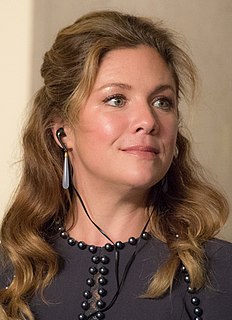A Quote by Errol Morris
People like nonfiction presented to them in a certain way, so that they don't have to think about whether it's true or not. They like it to have that imprimatur of respectability, of genuineness.
Quote Topics
Related Quotes
I think, about the distinction between fiction and nonfiction. Fiction is not really about anything: it is what it is. But nonfiction - and you see this particularly with something like the BBC Samuel Johnson Prize for Non-Fiction - nonfiction we define in relation to what it's about. So, Stalingrad by Antony Beevor. It's "about" Stalingrad. Or, here's a book by Claire Tomalin: it's "about" Charles Dickens.
People tend to think of gentrification in terms of race because it's presented that way, and I think it's presented that way because in poor cities that's what's really going on. Beyond that, I think it's presented that way as a way for the people who are really pushing it to make it just a black problem, so people don't care.
The main trend with the theme episodes is that anywhere there is a misconception about the way the physical world works, we're finding fertile material. Whether it's in a phrase like "going over like a lead balloon" or "a needle in a haystack," or tackling movie myths or even a genre, like MacGyver or James Bond, we're finding that all these things can lead to people believing the world works in a certain way. It might not be correct, but we can test out if it's true.
I understand how success is judged and calculated in the coaching profession. That's really all I care about. You go about this business a certain way. Everybody has a certain style and opportunities that are presented to them during your career. When it's over, I'll be judged by that. I care more about the people I work with.
It's fascinating that people, there's so many people now who will make judgments based on what you look like. I'm black. So I'm supposed to think a certain way. I'm supposed to have certain opinions. I don't do that. You don't create a box and put people in and then make a lot of generalizations about them.
I think all of us, under certain circumstances, could be capable of some very despicable acts. And that's why, over the years, in my movies I've had characters who didn't care what people thought about them. We try to be as true to them as possible and maybe see part of ourselves in there that we may not like.
I saw one of the absolute truths of this world: each person is worrying about himself; no one is worrying about you. He or she is worrying about whether you like him, not whether he likes you. He is worrying about whether he looks prepossessing, not whether you are dressed correctly. He is worrying about whether he appears poised, not whether you are. He is worrying about whether you think well of him, not whether he thinks well of you. The way to be yourself ... is to forget yourself.
I don't really get that nervous about whether people like it. You can't do anything about that. It's more technical. You spend two years of your life obsessing, picturing sound details, and you work so hard to make a movie a certain way, that you get there, and you're like - is it loud enough or whatever, so that this experience with everybody in this room is the fairest chance I can get. And then if you like it, cool, and if you don't, whatever.
When it comes to having conversations with girls what I hear from them is that there is a lot of pressure to look a certain way, act a certain way, perform a certain way, and there are very mixed messages. We are telling them, 'Be yourself, be true to who you are,' but what does that mean in a society of comparison, competition, and individualism?
Some like them hot,some like them cold. Some like them when they're not to darn old Some like them fat,some like them lean. Some like them only at sweet sixteen. Some like them dark,some like them light. Some like them in the park,late at night. Some like them fickle,some like them true, But the time I like them is when they're like you





































